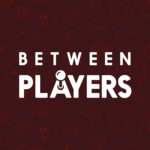
Episode 005
Transcript
Howdy friends, this is Zach, with a quick Single Player episode. Today I want to tell you about my retirement from the e-sport shooter sensation that is Overwatch.
Overwatch, is a class based hero shooter in case you have never played or heard of it before. Blizzard has poured tons of money and talent into a game that is designed to capture both the e-sport craze and the adoration of filthy casuals. Marrying together MOBA like mechanics and map styles with a FPS twist.
I started my journey playing with two close friends and we were a merry trio learning the ropes. We began playing with bots at first to get the feel of things. But slowly we started playing matches with actual real oxygen breathing people.
After a few weeks of getting used to the flow of the basics, controlling and defending, denying and succeeding, we each started finding the characters that matched our play styles the best. I found myself playing a flex role for the most part, either support or tank rarely a skill shooter. In general support is the play style that I gravitate to in multiplayer games. Even during my short stint on DOTA2, I found support to be an appropriate role for myself.
In the beginning, we had good nights, we had bad nights, we drank deep the fun of learning how to manipulate aspects of the characters to our advantage. But, as the weeks went on I started to have compounding frustration with Overwatch. There seemed to be this uneven yo-yo of failure and success.
As I started looking at my win to loss stats as well as the those of the players around me, it appeared that most players don’t have a much greater than 50% win loss ratio. What does this mean? It means luck has more to do with victory than skill. Overtime this percentage will change as the game becomes more sophisticated. But for those first 6-8 months, it felt like a coin toss.
One of the things that contributes to Overwatch’s feeling of a lack of balance, is the introduction of new heroes. With each new hero or an existing hero retooled (could be nerfs or buffs), the match balance breaks. Without fail, the new hero is either overpowered or enhances another character to the point of OP as well. This seesaw shift in the power dynamics nullifies any skill you accrued in the previous season. And forces you to begin the process of relearning familiar characters and developing new strategies of play.
Even without this difficult development challenge that Blizzard has of play balancing so many unique heroes, Overwatch is a game that is very over-extended. It can’t decide whether it wants to be an E-Sport or another casual friendly, competitive power fantasy.
Game modes in Overwatch are an example of this fence sitting approach to design the team has taken. Overwatch launched with two core game modes, point defense/capture and escort. Point capture or defense is what it sounds like. You death ball your way from one defensible point to a second one. It uses a king of the hill mechanic to capture that location and move the next.
Escort, has your team following or riding an superbly sluggish vehicle from one point to another on the map. While the fury of the opposing team descends upon you. Like a bunch of hangry pigeons pecking away at a loaf of bread dragged along by a string. This mode has a very Tug of War ish feel mechanically but the driving team has way more momentum and speed when driving.
The ranking system also seems to be unable to decide how to reward you. Players who have crossed the 100lvl mark multiple times are more often than not, people who have invested time but perhaps aren’t that skilled. And many of these are single character players. Such as the Pro-Genji or the Pro-Macree. Unwilling to switch their roles to help support the team they are currently on.
Tilting. A term coined in poker to describe a mental state of frustration that leads to poor decision making. Even with the aide of industry leading communication tools, games range from fun to complete melt-downs. I don’t want to dwell too much on this because you know what I am talking about. Things start to go bad and nothing seems to turn it around. Everyone’s moral drops and all of your positive endorphins commit seppaku.
I don’t hate Overwatch. It’s a beautiful clone of Team Fortress 2. The characters are super imaginative and fun to play. The diversity and variety of roles give you tons of agency and cool swag to collect when loot (dupe) boxes don’t screw you over. The combinations of play styles and environments combined with lore give the game a real sense of depth.
After a year of playing the game casually I had reached my fill of it. I miss playing with my friends, but the overwhelming sense of failure I got from the game led me to stop. Overwatch has a lot going for it and if you haven’t already tried it out, you should. Play it for yourself and you may experience what I am talking about. Or you might love it. And that is just fine.
Thanks for your time friends and until the next, keep playing.
Tell us about your favorite quick players and let us know if you are enjoying the show or what we can do to improve it via electronic mail or on twitter @betweenplayers
You can also leave comments on our tracks on SoundCloud
Thank you for listening to the show.
SHOW NOTES:
Special Thanks
Illustartion – Evan McIntyre
Audio Consulting – Josh Hunt
Music – dark cat – Maple Adventure
Follow dark cat
- SoundCloud – soundcloud.com/dark_cat
- Twitter – twitter.com/im_darkcat
- Facebook – facebook.com/imdarkcat/
